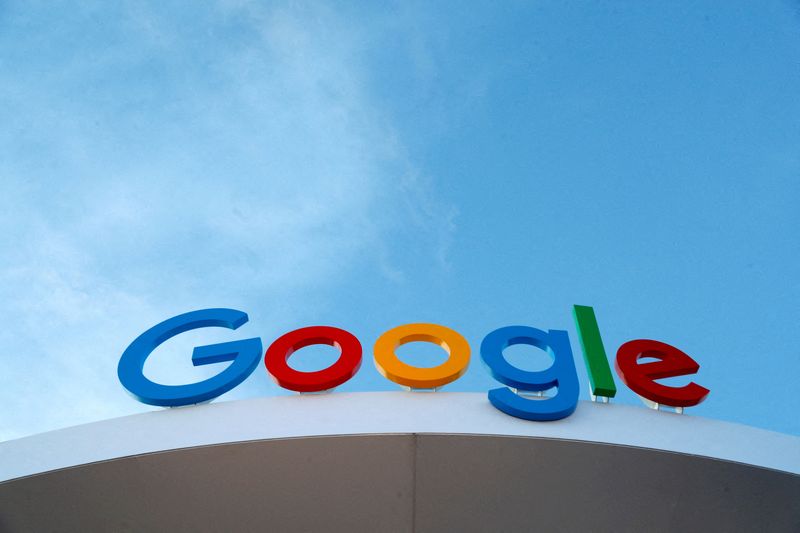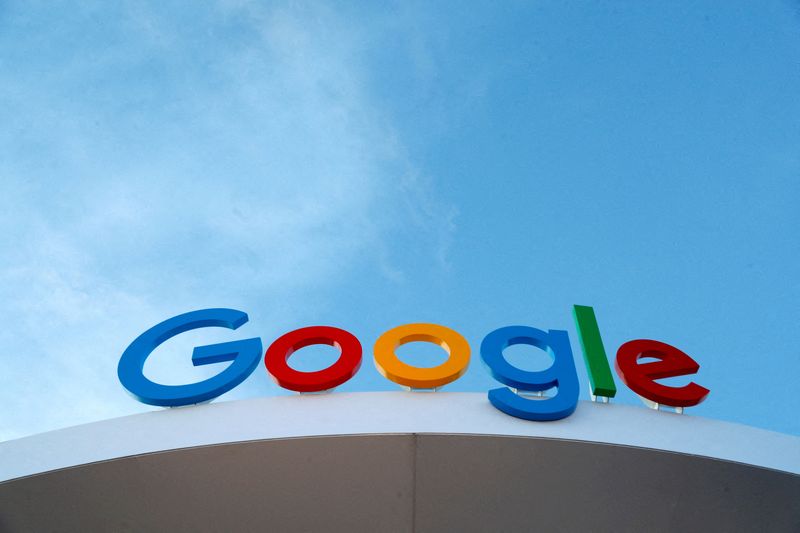## Level Up? US Government Targets Google’s Ad Empire in a High-Stakes Game of Monopoly!
Gamestanza loves a good power struggle in the gaming world, but this time the battleground is the internet itself. Forget virtual empires, the US government is throwing down the gauntlet against Google, aiming to dismantle its massive ad tech empire!

Could this move shake up the very foundations of how games are funded online?
Will smaller developers finally get a fighting chance? Or will Google dominate the digital space even harder? We dive into the details of this antitrust showdown and explore what it means for your favorite games. Get ready for some serious real-world gameplay!Potential Impact on the Gaming Industry: Will Gamers Feel the Difference?
Examining the Ripple Effects

Gamestanza understands that the gaming community is deeply invested in the future of online advertising. While the proposed divestiture of Google’s AdX and DFP platforms may seem like a legal battle far removed from the joys of gaming, the ramifications could be significant.
The gaming industry relies heavily on targeted advertising to fund free-to-play games and support content creation. AdX and DFP are cornerstone technologies in this ecosystem, connecting advertisers with gamers through a vast network of gaming websites, mobile apps, and streaming platforms.
A potential change in the landscape could lead to:
- Reduced ad revenue for game developers and publishers, potentially impacting the development of new games and updates to existing ones.
- Shifting advertising strategies as developers explore alternative platforms and ad models.
- Changes in the types of ads gamers encounter as new players enter the market and bring different approaches to targeting and ad formats.
It’s still too early to definitively say how these changes will impact gamers directly. However, the potential for a less fragmented and more competitive ad tech landscape could ultimately benefit consumers by leading to more relevant ads, better user experiences, and a greater diversity of gaming content.

Google’s Defense: Fighting Back Against the DOJ’s Claims
Google’s Stance: Challenging the Legal Basis for Divestiture
Google vehemently denies the DOJ’s allegations, arguing that the proposed divestiture lacks legal grounding and would harm the very publishers it aims to protect.
In a statement to Gamestanza, Lee-Anne Mulholland, Google’s vice president of Regulatory Affairs, emphasized, “The DOJ’s additional proposals to force a divestiture of our ad tech tools go well beyond the Court’s findings, have no basis in law, and would harm publishers and advertisers.”

The Publisher Perspective: Google’s Argument for Maintaining Control
Google contends that its ad tech tools provide publishers with essential resources to manage and maximize their ad revenue.
The company argues that maintaining control over these platforms allows it to:
- Offer competitive pricing and advanced features to publishers, helping them compete in the digital advertising marketplace.
- Ensure a seamless and efficient ad delivery experience, minimizing technical issues and maximizing revenue potential.
- Provide robust analytics and reporting tools that empower publishers to understand their audience and optimize their ad strategies.
- Forced divestiture of AdX and DFP, potentially leading to the emergence of new players and a reshaping of the digital advertising landscape.
- Heavy fines and penalties, further squeezing Google’s already strained financial margins.
- Damage to Google’s reputation as a fair and ethical business, potentially impacting its ability to attract talent and maintain consumer trust.
Google maintains that divestiture would disrupt these vital services, potentially harming the financial well-being of publishers and ultimately reducing the quality of gaming content available to players.

Potential Consequences for Google: Facing the Wrath of Regulators
If the court sides with the DOJ, Google faces significant consequences, including:
The outcome of this case could have far-reaching implications for Google’s future, setting a precedent for how regulators approach antitrust concerns in the tech industry.
The Future of Online Advertising: Navigating a Changing Landscape
Implications for Game Developers and Publishers: New Opportunities and Challenges
The potential divestiture of Google’s ad tech assets presents both challenges and opportunities for game developers and publishers.
On one hand, they may face increased competition for ad revenue as new players enter the market.
On the other hand, a less dominant Google could lead to more diverse ad formats, fairer pricing structures, and increased transparency in the ad tech ecosystem.
The Role of Competition: Will a Less Dominant Google Benefit Gamers?
Gamestanza believes that increased competition in the ad tech sector is crucial for fostering innovation and protecting consumer interests.
A less dominant Google could encourage smaller, more nimble companies to develop new ad technologies that prioritize user experience and data privacy.
This could lead to:
- Less intrusive and more relevant ads, improving the overall gaming experience.
- Greater control for gamers over their ad exposure, allowing them to choose the types of ads they see.
- More transparent and ethical ad practices, building trust between gamers, developers, and advertisers.
- Empowering smaller businesses and startups to compete with larger tech giants.
- Fostering a more open and competitive digital marketplace.
- Driving innovation and the development of new technologies that benefit gamers and all online users.
The Bigger Picture: The Global Impact on Digital Advertising and Innovation
The U.S. Department of Justice’s antitrust case against Google has global implications for the digital advertising industry and the future of innovation.
The outcome of this case could influence regulatory approaches to big tech in other countries, potentially leading to a more fragmented and diverse digital advertising landscape.
This could ultimately benefit consumers by:
Conclusion
So, the US government wants to break up Google’s ad tech empire. Big news, right? The Justice Department’s lawsuit argues that Google’s control over ad tech tools is stifling competition, hurting publishers, and ultimately raising costs for advertisers. They’re essentially saying Google has become the monopoly of the digital advertising world, squeezing out smaller players and using its dominance to unfairly profit. This isn’t just about algorithms and code; it’s about the very foundation of how online content is funded. If the government succeeds, it could reshape the digital landscape dramatically. We could see a more fragmented ad tech market, with smaller companies vying for a larger share. This could lead to more innovation, but also potentially more complexity and instability. For gamers, this means the future of free-to-play games and online advertising could be significantly different. Will we see less intrusive ads? Will developers have more flexibility in monetizing their games? Or will the fragmentation lead to a less vibrant and diverse gaming ecosystem? Only time will tell. But one thing’s for sure: the fight over Google’s ad tech dominance is a battle that will have far-reaching consequences for the entire digital world.
